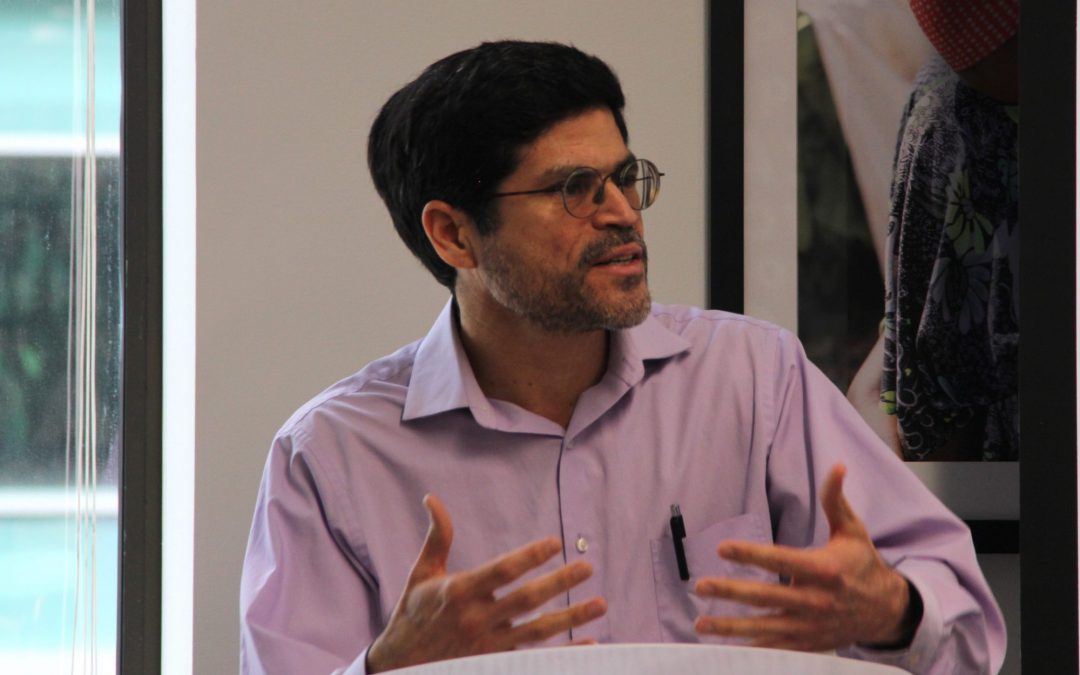Seven weeks into 2018 the nation is having an all too familiar conversation: How do we prevent school shootings? With seventeen confirmed dead in the latest shooting in Parkland, Florida on Wednesday, this marks the eighth school shooting in the U.S. in 2018 that has resulted in injury or death.
While there is no simple answer, there is one common thread shared by many of these mass shooters: their abuse towards women. One student reported that Nikolas Cruz was abusive towards his ex-girlfriend and was expelled from Marjory Stoneman Douglas High School after fighting with her new boyfriend. His former math teacher said he reached “the point of stalking” another female student.
Everytown for Gun Safety, a gun control group, analyzed F.B.I. data on mass shootings between 2009 and 2015 and found that 54 percent of cases were related to domestic or family violence. Sixteen percent of the attackers had been previously charged with domestic violence.
“This is not about a few bad apples, it’s not about a few guys doing this,” said Oswaldo Montoya from MenEngage Alliance while addressing a panel on including men in advancing gender equity. “It’s about the system.”
The International Center for Research on Women held a discussion Thursday about how to include men as partners in advancing gender equity with speakers from MenEngage Alliance, Women for Women International and Promundo-U.S.
In the wake of the Parkland shooting, panelists explored the different types of programming their advocacy groups are pursuing to challenge traditional norms of masculinity. Questions about the shooter’s mental health and access to firearms are circling the media, but Montoya said we need to be paying attention to the rigid definition of masculinity boys are raised around and forced to abide by.
“Depression is a red flag with young men. Access to arms is a red flag in young men.
What about being male? Is being male a red flag?” he asked the room. “My response would be no, being male is not a red flag for violence. But being raised male in patriarchal society is a red flag. The way men and boys are raised is a red flag.”
Organizations like Promundo-U.S. have been working on creating new depictions of masculinity to circulate around popular media. Their campaign MenCare, shows different images of what it means to be a caring, non-violent father, including posters of fathers at prenatal visits and playing with their children.
Panelists agreed that in order to advance gender equity, men need to have a stake in the conversation –– presenting men as more than just allies, but instead as co-beneficiaries of equity. Yet still, the entire panel sans Montoya was female, displaying the lack of male involvement even in advocacy efforts.
Still Joni van de Sand from MenEngage Alliance said they’ve seen a higher demand to include men in movements like #MeToo’s battle against sexual harassment and abuse. While there’s been backlash against the movement, Sands said there’s a role for “good men” to play in the conversation. Including these men must start by making them aware that they are still part of a system that they largely benefit from.
They have “to dig deeper… and reflect on their own roles, how privilege plays out in their own lives and what it means to be a man,” Sands said.
It’s not enough for men to step in and protect women in a traditional “savior” sense. Instead, she said, men need to be active bystanders, hold others accountable, support good workplace policies and work to make the spaces they occupy more feminist oriented.
A recent study conducted by Promundo found that men in the U.S. with more equitable attitudes were less likely in the past 30 days to perpetrate sexual harassment than others.
Allie Glinski, gender specialist at the International Center for Research on Women, said we often think that attitudes must be changed to address issues of harassment and violence against women, before we can see a change in behavior. But the opposite seems to be true. Because of increased social repercussions against harassment, more men might be inclined to change the way they treat women. This doesn’t necessarily mean their traditional, denigrating views have suddenly transformed. But Glinski said changed behavior is often the first step to chipping away their preconceived attitudes towards the women in their life.
Montoya recalled being confused when he saw a U.S. senator this morning expressing on television that Parkland was an inexplicable tragedy. Montoya said, “What happened yesterday is explicable.”
In many circles, men are expected to fill traditional roles of masculinity: the alpha-male provider. The links between domestic abuse and mass shooting are clear. 98 percent of mass killers are men. To Montoya, that is no coincidence.


